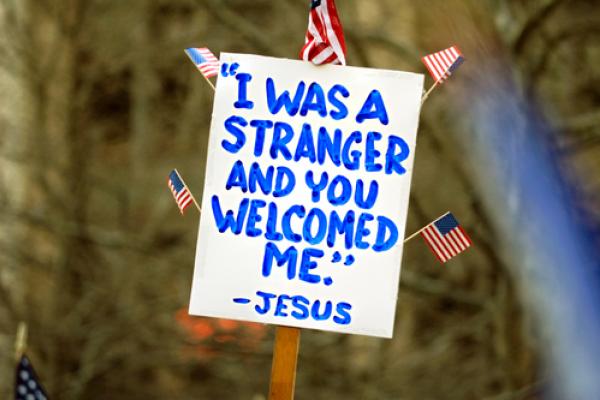DURING THE SUMMER of 2003, 25 staff of InterVarsity Christian Fellowship and their families rode a bus through 10 states on the "Pilgrimage for Reconciliation." We retraced the Cherokee Trail of Tears and explored the journey of African Americans from slavery to the civil rights movement.
As we rolled over land that had witnessed the most evil individual acts and public policies enacted on American soil, and as we heard again and again how the church was either silent or complicit, we wondered aloud: "What issue will cause our grandchildren to look back at us and ask, 'Where were you?'"
There are many we could choose from. But on this day, approaching spring 2013—a decade after our pilgrimage, 50 years after Dr. King's "Letter from Birmingham Jail," 150 years after the Emancipation Proclamation—I know where I stand. On this day, I stand with my sisters and brothers in the church who are pressing our nation's leaders toward just and comprehensive immigration reform.
In the last three years, more than 1 million men, women, and children have been erased from our land through deportation. They were caught between two signs at our border: "Help Wanted" and "No Trespassing."
By law, only 5,000 "unskilled" workers are allowed into the U.S. through legal means each year. That is about the number of people processed on Ellis Island every day in the early 1900s. Meanwhile, our nation's industry and food supply rely heavily on the labor of immigrant populations. About 75 percent of all U.S. farmworkers are unauthorized immigrants. Then consider other industries: meatpacking, hospitality, restaurants, transportation. The disparity between the demand for workers and the supply is untenable.
Read the Full Article

